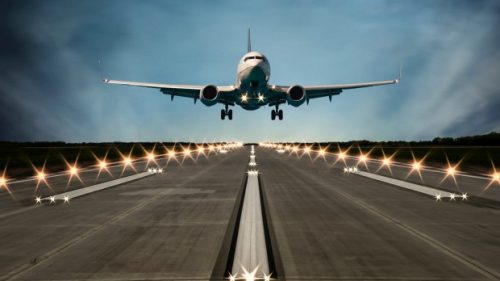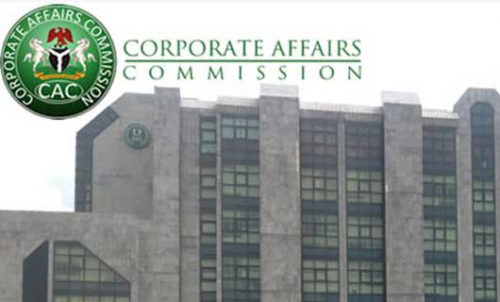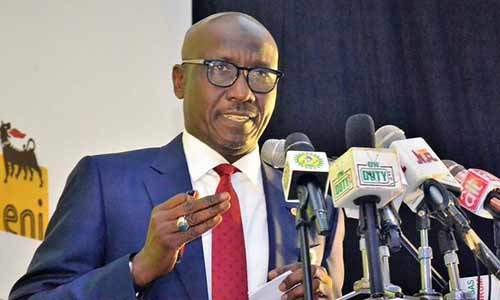SECTOR INSIGHT 11/02/2022
Hike In Air Fares Looms As Jet Fuel Jumps To N400 Per Litre

Some Nigerian airlines may be forced to close shop very soon following the rise in the price of Jet-A1, otherwise known as aviation fuel, by over 100 percent to N400 within a year.
As at February 2021, a litre of aviation fuel went for N190 per litre, but the same litre is sold between N400 and N500 in some airports in the country barely a year later.
There are also fears that the high price of the product, which takes between 35 to 40 percent of the total economics of airlines may lead to an increase in air tickets by local airlines, while industry investors warned that some operators may be compelled to shut operations if the challenges in the sub-sector were not immediately nipped in the bud by the government. Speaking with aviation correspondents on Wednesday at the Murtala Muhammed Airport (MMA), Lagos, Dr. Obiora Okonkwo, the Chairman, United Nigeria Airlines (UNA), lamented that the sudden rise in the price of Jet-A1 in the last one year has had a negative impact on the operations of airlines in the country.
According to him, when UNA commenced flight services on February 12, 2021, the price of aviation fuel was N190, but regretted that the price has jumped to N400 per litre within a year.
Besides, Okonkwo explained that the exchange rate had also jumped from N340 to N570 to a dollar within the same period, stressing that it was pertinent for the government to look critically into the development of the industry in order to arrest collapse.
He noted that without aviation sector, the economy would collapse while its contributions to the Gross Domestic Product (GDP) would also be adversely affected. Okonkwo emphasised that the sharp rise in the price of aviation fuel, foreign exchange and other essential commodities had rubbished the plans of operators in the country, stressing that “things are happening very fast in Nigeria.”
“The aviation industry in Nigeria has witnessed a whole lot of inconsistencies in the last one year. For instance, when we started on February 12, 2021, the price of aviation fuel was only N190 per litre, but today, the same product goes for N400 per litre.
“Also, the first foreign exchange we had about a year ago was N340 to a dollar, but today, it is between N450 and N570, especially if you are sourcing from the other market.
“However, despite the fall in naira, the base fare for ticket is still between N21,000 and N23,000. Aviation fuel could easily become about 30 to 40 percent of your cost of operations. Ninety-nine percent of aviation components are foreign exchange denominated.
A ticket was about N2,000 in year 2000, which was about $100 then, but look at the situation today.”
However, Okonkwo insisted that despite the inconsistency in the operating environment in Nigeria, the airlines, especially UNA, would not relegate safety and security to the background in the discharge of their duties. Confirming the development, Barr. Allen Onyema, the Chairman, Air Peace, said that aviation fuel price oscillate between N400 and N500 at present in some airports.
Speaking on phone with our correspondent, Onyema emphasised that barely 20 years ago, the least air ticket in the domestic market was N2,200, which was equivalent to $100. But, now, Onyema said with the current fall of naira to major currencies, including the dollar and the high price of aviation fuel, the base fare remains N18,000 to N23,000 for one-way ticket.
He insisted that with such fare regime, there was no way the airlines would continue to remain in business and warned that collapse of the sub-sector was imminent unless the government wades in. Besides, the Air Peace chairman pointed out that the insurance premium for Nigerian carrier was the highest anywhere in the world. According to him, despite the ridiculous low airfares, airlines still pay charges like the 5 percent Ticket Sales Charge (TSC) to the Nigerian Civil Aviation Authority (NCAA), Passenger Service Charge (PSC), aerodrome charges and others, arguing that what comes to the airlines may not be up to N8,000 per passenger at the end of each flight. He said: “The high rise has impacted the operations of the airlines in Nigeria. The rise is over 500 percent.
It is N400 in some places. In some places, it is N450 per litre and the thing is nearing N500 and N600 per litre and we are buying a dollar at N580. “In 2002, the least ticket fare was N2,200 and that was about $100 then.
Twenty years down the line, airlines air charging N18,000 to N23,000, which is less than $40. There is a problem.
Even people in the outside world are asking us question how we are able to maintain our aircraft because of the kind of airfares that we charge. “What comes to the airlines out of the N23,000 might be N8,000. It is from there you will pay your staff, insurance and others.
The insurance premium for Nigerian airlines is higher than anywhere in the world.
As far as I am concerned, Nigeria is being stigmatised by insurance companies.
They tell us that Nigeria is unsafe. So, what we use in insuring one aircraft is what is used to insure three aircraft elsewhere. Nigerian airline is dead on arrival unless something urgently happens.
“It is either something is done or many of the airlines will close down at the rate we are going. No airline will be able to maintain its aircraft adequately with the kind of fares we are seeing now.
A lot of planes will be grounded and a lot of airlines may go out of business. I am not blaming the fuel marketers or anybody, but Nigerians understand what it is. It is nobody’s fault, there is nothing anybody could do about it. We have a lot on our hands.”
He declared that to remain in business, some of the airlines may increase airfares, but said this depended on individual airlines. Also, Mr. Kingsley Ezenwa, the Media Manager, Dana Air, bemoaned the high rate of Jet-A1 in the domestic market.
Like Onyema, Ezenwa said the airlines may take some drastic steps to remain in business. “N400 per litre is on the high side. There might be some slight fare changes,” he said.



